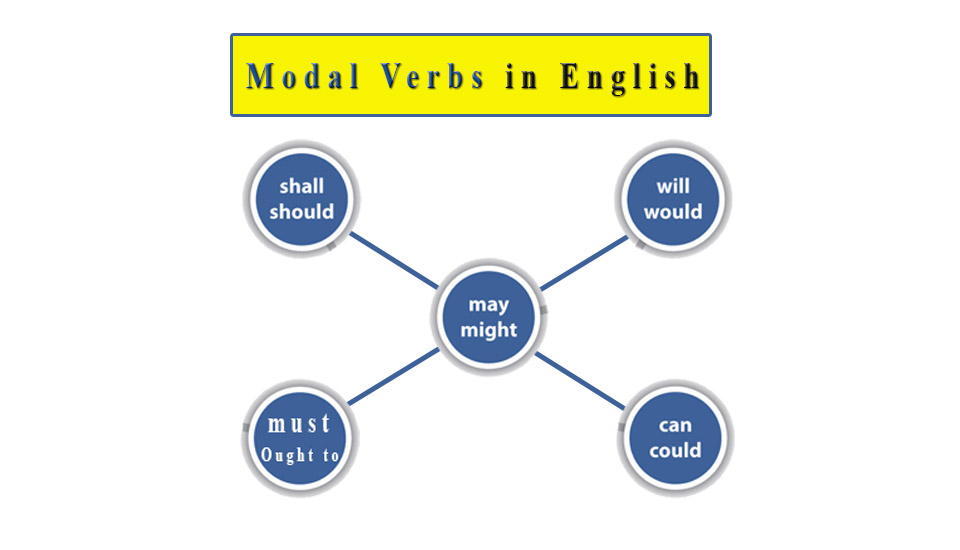Modal verbs are words like can, could, may, might, shall, should, will, would, must, ought to etc. They are used with other verbs to express ideas such as possibility, prediction, speculation, deduction and necessity. Or modal verbs show different moods and attitudes of the speaker.
Modal verbs are one of the complex structure in English grammar, in this article we will look at most common modal verbs and its uses in English.
Using modal verbs in a sentence
All the modal verbs have the following features in common.
Modal verbs are always followed by the ‘infinitive without to’.
- I can swim. (Correct)
- I can to swim. (Incorrect)
- She could swimming well. (Incorrect)
They are the same for all the pronouns, and do not take ‘s or es’ for singular subjective pronouns.
- She can swim. (Correct)
- She cans swim. (Incorrect)
- They can swim. (Correct)
They do not need auxiliaries.They direct take negative and question forms.
- Can you do this? (Correct)
- Do you can do this? (Incorrect)
- He may no like it. (Correct)
- He does not may like it. (Incorrect)
Modal Verbs
1. Can
- Ability: Ali can swim.
- Permission: Can I come with you? (‘May’ is also used.)
- Offers: Can I help you?
- General Possibility: You can speak fluent English when you travel to an English country.
2. Could
- Possibility: I could do it, if you like.
Past ability: I could swim when I was three. - Permission: Could I use your phone please?
- Requests: Could you babysit for us on Friday?
- To suggest: We could write a letter to the director.
3. May
- Possibility: The director may come to our class.
- Permission: May I use your dictionary?
Note: May and might are used to talk about possibility in the past, present or future, but may is sometimes more sure (50%), whereas might express more doubt may (30%) chance.
4. Might
- Slight possibility: He said he might come tomorrow.
- Past form of ‘may’ In reported speech:The President said he might come.
- Polite suggestion: You might try calling the help desk.
5. Shall
Shall is a form of will, used with firs person “I and we”. The only time you do need to use it is in questions, when:
- Offers: Shall I order a taxi?
- Suggestions: Shall we go to the party tonight?
6. Will
- Future tense auxiliary: I will buy a computer tomorrow.
- Invitations: Will you join us for dinner?
- Offers: Won’t you accept the appointment?
7. Must
- Certainty: They must be the winners.
- Necessity: Students must pass an entrance examination to study at this school.
- Strong recommendation: They must come in time for the appointment.
- Prohibition: Hussain, you must not play in the street!
8. Should
Giving advice in past, present and future:
- You should have studied more often. (Past)
- You should brush your teeth every day. (Present)
- They should take admission tomorrow. (Future)
- Obligation: weak form of must: The government should reduce the taxes.
9. Ought to
Ought to means the same as should but should is stronger because it implies a negative consequence if you don’t follow the advice. Another difference is that usually ought to is not used with questions.
- I ought to see a doctor.
10. Would
- Advice: If I were you, I would return the book.
Note: For advice Normally, would is used to talk about yourself, and should is used to talk about someone else.
Past form of will: I thought I would be late …… so I would have to take the train.
Hypotheses: It would be very expensive to stay in a hotel
Important:
Have to, has to and will have to are not model verbs but they are equivalents and used as model verbs to express certainty , necessity, and obligation.


1 comment
Great resources